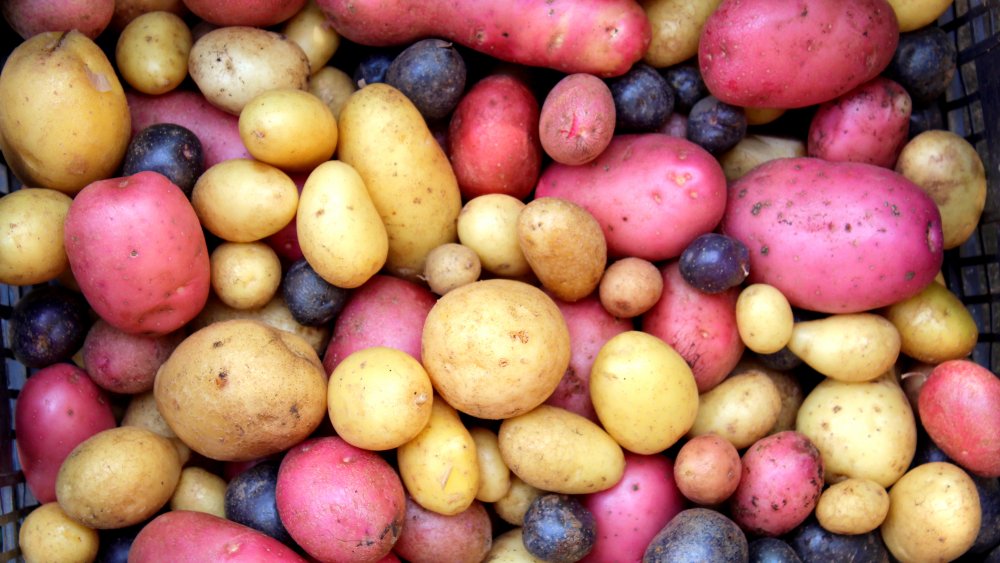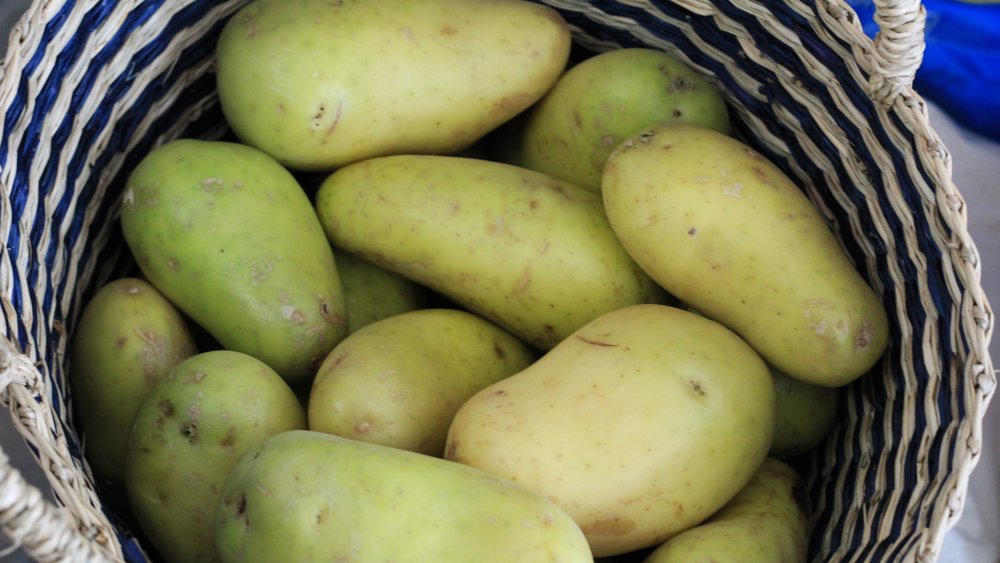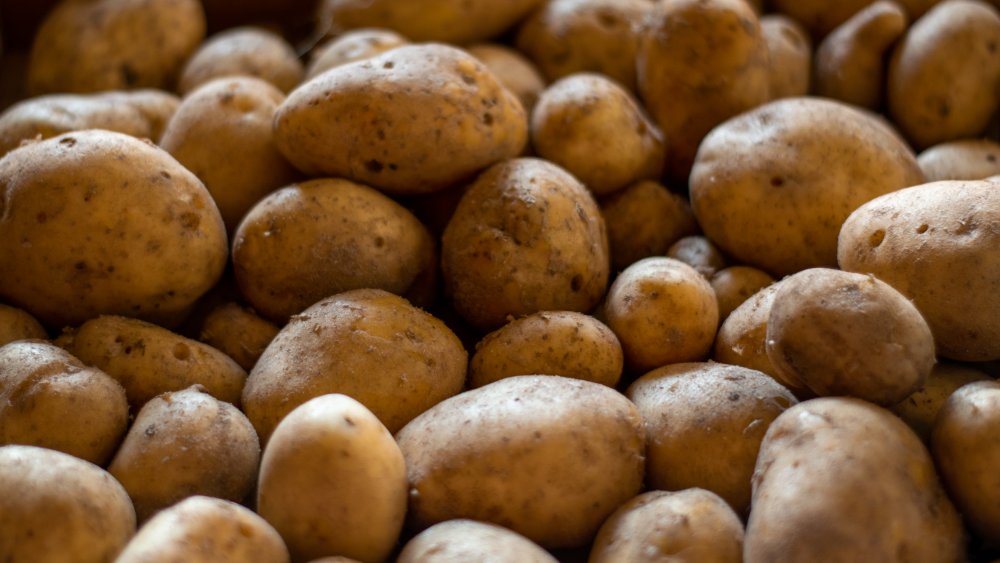The Trick To Keeping Potatoes Fresh Longer
Everyone loves a good spud. There are countless recipes you can make with a potato because despite its humble appearance, it's quite a versatile tuber. There are many creative ways to cook potatoes that you've probably never even thought of before.
Given all the potential the potato can bring to a kitchen, it's common for people to load up on this culinary staple. But when you buy potatoes in bulk, you might find that after a while, some have turned wrinkly (or even rotten) by the time you reach the bottom of the sack. Or you may find that a tater you left sitting out has turned frightfully green.
Fret no more — we have the answer to your potato woes. There are some simple steps you can take to keep your spuds fresh for weeks or even months.
First off, proper storage is key. Storing potatoes the right way will keep them nice for four to six months. They last longer when kept in a cardboard box, paper bag, mesh bag, or basket. These kinds of containers allow air to flow through, ensuring good ventilation (via The Spruce Eats). Plastic bags, on the other hand, shorten the shelf life of your tubers significantly because the carbon dioxide and water in the form of vapor that the spuds release are trapped inside. If you want to use a plastic bag, you can pierce holes into it and make sure the top is not tightly sealed (via Food52).
The proper way to store potatoes
You also have to think about where you store potatoes because the conditions of the location can affect how long they last. If spuds are left in a bright place, with lots of sunlight or fluorescent light, their skins produce chlorophyll, a green pigment. While chlorophyll itself is harmless, many discard green taters because sun exposure also produces high levels of solanine, a toxic chemical.
This chemical is bitter and can cause a burning sensation in the mouth and throat. In larger amounts, solanine can lead to nausea, vomiting, diarrhea, and even death in a few cases. But many countries have strict guidelines to limit the amount of solanine in potatoes sold commercially, so these extreme side effects are not common. To avoid consuming it, remove the skin and any green flesh underneath (via Healthline).
Improper storage of your tubers may also lead to sprouting. If you put them in a dark corner near your kitchen sink, for instance, you're simulating the dark and moist environment they thrive in — leading to sprouts. You should keep your potatoes in a cool and dark spot, such as in a cupboard or pantry that is away from the stove, heating vents, or sink. The Spruce Eats recommends storing your potatoes in places with humidity that is kept between 45 and 50 degrees Fahrenheit, such as an unheated basement. For the winter, consider using an insulated garage or shed.
How to keep potatoes fresh
One thing you should never do is put spuds in the fridge. The temperature is too cold, leading the starches in them to turn into sugar. You also shouldn't store your potatoes with other produce. Keeping them together with onions, avocados, bananas, and apples might cause flavors to transfer and premature sprouting, as gases that encourage ripening are emitted.
To keep your tubers as fresh as possible, a vigilant eye is required. Before you squirrel them away for the long haul, be sure to check all of them for any soft spots, sprouts, mold, or damage from shovels or pests. Only perfect spuds can stay fresh long-term. This is something you have to keep aware of as time goes on as well. Inspect your potato stash regularly and take away any that have become soft, wrinkly, or sprouted to avoid others from going bad. Also, do not wash any taters unless you are ready to use them.
It's not the end of the world if your potatoes have sprouts, however. Sprouted potatoes are still safe to eat as long as they are firm to the touch and not shriveled. Plus, if you have a green thumb, you can use sprouted potatoes to start growing your own at home. Cut them up so there's an eye on each piece, give them time to harden off, and then plant them in your garden.


